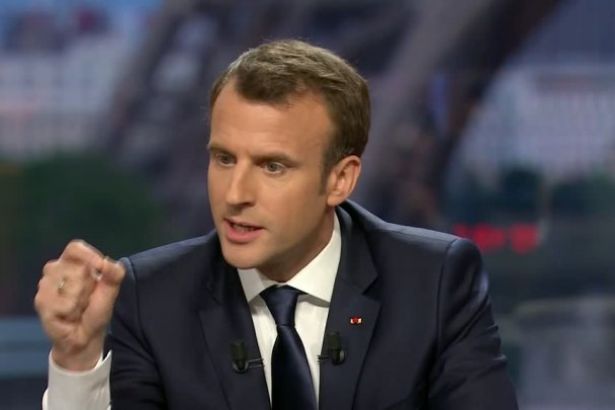Macron says Ankara and Moscow ‘separated’ over Syria strikes, Turkish gov't dismisses it

In an interview, French President Emmanuel Macron suggested that the weekend air strikes against Syria had succeeded in engineering a split in the Russia-Turkey alliance.
"With these strikes and this intervention, we separated the Russians and the Turks on this issue... the Turks condemned the chemical strike and supported the operation that we conducted," the French president told French BFM TV in an interview.
Late Friday the United States, the United Kingdom and France launched a coordinated airstrike in Syria, under the pretext of the unsubstantiated international campaign about the use of chemical weapons in the Syrian town of Douma.
Ankara is satisfied with the strikes against Syria, the Turkish Foreign Ministry said Saturday. President Recep Tayyip Erdoğan had welcomed the strikes, which he described as "appropriate".
According to the CNN, Turkey's southern Incirlik was among the bases the strike had been launched. However, Turkish Deputy Prime Minister Bekir Bozdağ said: "The İncirlik base was not used in the attack."
Kremlin spokesman Dmitri Peskov denied that the air strikes prompted a split between Moscow and Ankara. "It's not a secret that Ankara and Moscow's positions differ on a number of issues," he said. But he emphasised that such differences would have "no impact on the prospects of our cooperation in a number of areas," Peskov.
Turkish Foreign Minister on Monday said Macron will be unable to "break" its partnership with Russia. "We can think differently but they (our relations with Russia) are not so weak that the French president can break them," Foreign Minister Mevlüt Çavuşoğlu said at a press conference with NATO Secretary General Jens Stoltenberg. "We have strong relations with Russia. But our relations with Russia are not an alternative to NATO relations or our allies," Çavuşoğlu said.




